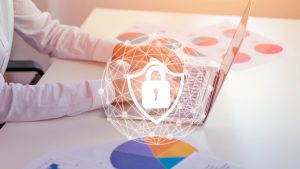Mobile World Congress (MWC) provides yet another opportunity for technology giants to flex their muscles and whip the industry into a frenzy. Even more-so than last year, mobile is a reflection of the Internet of Things (IoT) and the hyper-connected world we find ourselves living in. Following in the footsteps of CES, I expect to see a heavy focus on ‘smart’ technology as everything from hairbrushes to fridges and even pregnancy tests look to receive an IP overhaul.
But as companies battle to stay ahead of the competition, racing to bring innovative products to market, many are stumbling when it comes to security. And I’m worried.
In the last year alone, some of the worst IoT vulnerabilities have come to light, with the security of connected cars and even pacemakers being called into question. Never mind the threat of identity and financial theft, if cybercriminals are able to hack and control these objects, consumers’ physical health and safety could be at risk.
Traditionally in the automotive industry, for example, every aspect of the car would be rigorously tested to ensure drivers and passengers are as safe as possible. However, we haven’t seen the same stringent approach taken to protecting our increasingly computerised cars from hackers. Although driverless cars may not be mainstream, research from McAfee suggests 78% of new cars will be connected to the Internet by 2022 and therefore open to potential security breaches.
The lack of importance placed on cybersecurity has filtered through to consumers and is reflected in attitudes to data protection in connected devices. People wouldn’t dream of driving a car off the forecourt without seatbelts, yet they’ll happily invest in the next flashy car without knowing whether it has adequate cyber security in place.
MWC is the perfect platform for influential figures within technology and the wider industries such as health and automotive, which are investing heavily in connected devices, to discuss the ramifications of our increasingly connected world. We must continue to innovate, but we also have to work together to ensure that the latest technology doesn’t put consumers’ data or safety at risk. As an industry, we need to develop strict standards for manufacturers, with clear consequences for falling short of these standards.
Consumers also have a responsibility to drive change. If consumers refuse to buy products that are not properly secured, companies developing such products will start to take note and we’ll see security becoming more of a priority.
Data security is not a trend, it’s an ethical issue that holds the potential to impact us all if not taken seriously. With 5G on our doorsteps, hyper-connectivity will soon be a reality and more data than ever before will be transferred across networks via millions of devices. It’s imperative that we get security right and ensure products do not pose a threat to users.
As my colleague, Chris Young, said at this year’s RSA, “we have to start thinking of ourselves as smaller players in a bigger fight… we’re better when we link arms with like-minded partners, intent on the same goals.”
But if further collaboration is too much to ask, the Hippocratic oath is a simple philosophy that those involved in developing our connected world would do well to take note of: ‘help, or at least do no harm’.











